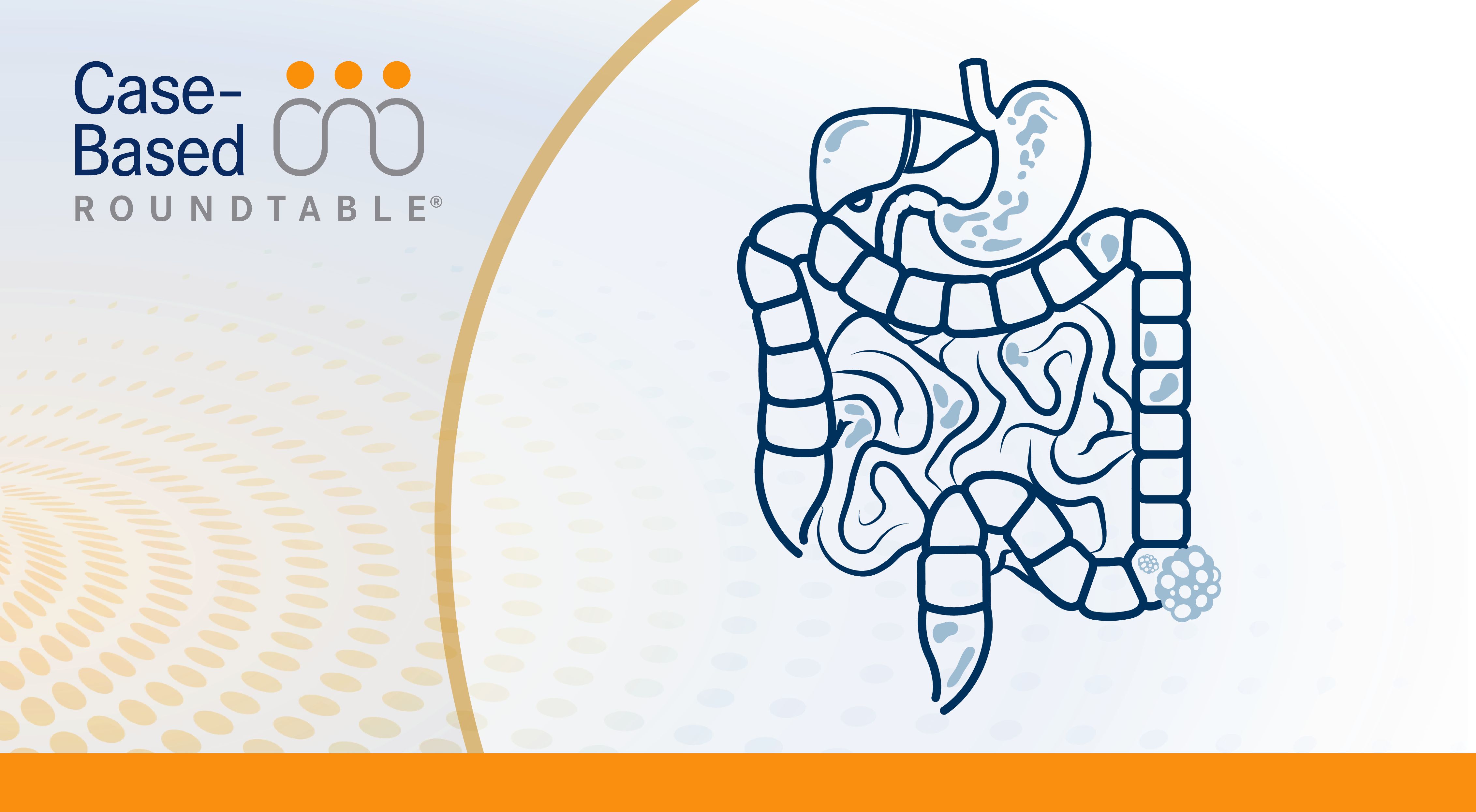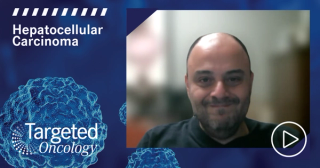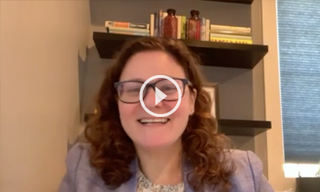
HCC
Latest News
Video Series

Latest Videos
Podcasts
More News

A machine learning model enhances treatment decisions for hepatocellular carcinoma, optimizing survival outcomes through personalized risk stratification.

A phase 1 trial of BA3182 shows promising safety and antitumor activity in treatment-refractory adenocarcinoma patients, highlighting its potential.

New findings reveal promising efficacy of irpagratinib and atezolizumab in treating advanced hepatocellular carcinoma with FGF19 overexpression.

Atezolizumab and bevacizumab enhance TACE effectiveness, significantly extending progression-free survival in unresectable HCC patients, as shown in the TALENTACE trial.

Akeso initiates a pivotal trial for cadonilimab and lenvatinib, targeting advanced liver cancer resistant to PD-1 therapy, addressing urgent treatment needs.

The HIMALAYA study reveals the STRIDE regimen significantly improves 5-year survival rates in unresectable HCC, redefining treatment standards.

During a live event, Mark Yarchoan, MD, and participants reviewed adverse event management for 3 different combination regimens for hepatocellular carcinoma.

During a live event, Mark Yarchoan, MD, and participants discussed their impressions of the CheckMate-9DW trial data in hepatocellular carcinoma.

EvoLiver, a blood test that detects early-stage liver cancer with high accuracy, has gained breakthrough device designation from the FDA.

During a Community Case Forum event, Stacey Stein, MD, discussed data guiding the use of current regimens for the treatment of unresectable hepatocellular carcinoma.
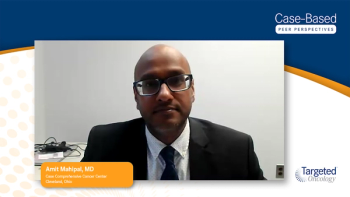
An expert discusses how in the first-line (1L) treatment of advanced unresectable hepatocellular carcinoma (uHCC) with tyrosine kinase inhibitors (TKIs) such as lenvatinib or sorafenib, proactive adverse event (AE) management is crucial. This includes baseline assessment; regular monitoring of adverse effects such as hypertension, hand-foot syndrome, and fatigue; and implementing preventive strategies. Treatment should be individualized with dose modifications as needed to balance therapeutic efficacy with quality of life, particularly given the advanced disease state.

The panelist discusses, for intermediate-stage unresectable hepatocellular carcinoma (uHCC), key clinical pearls include prioritizing transarterial chemoembolization (TACE) as a first-line therapy, with systemic options for TACE-ineligible patients or progression; consider lenvatinib or atezolizumab plus bevacizumab based on liver function and risk factors. Evaluate treatment success via a radiologic response (mRECIST criteria), AFP levels, and toxicity profiles; modify treatment upon radiologic progression, prohibitive toxicity, or declining performance status.

An expert discusses how recent analyses from the REFLECT trial in unresectable hepatocellular carcinoma (uHCC) demonstrate that both achieving objective response and greater depth of response correlate with improved survival outcomes. The depth of response serves as a potentially valuable early biomarker for prognosis and treatment decisions, with deeper responses associated with better overall survival among responders.

An expert discusses how treatment selection for first-line (1L) tyrosine kinase inhibitor (TKI) therapy in advanced hepatocellular carcinoma (HCC) requires careful evaluation of multiple factors, including liver function (Child-Pugh status), ECOG performance status, tumor burden, and presence of macrovascular invasion or extrahepatic spread. In reviewing individual cases, clinicians assess liver enzyme levels, α-fetoprotein values, radiographic findings, and comorbidities.

Panelists discuss how combining systemic therapy with locoregional treatments like transarterial chemoembolization (TACE) aims to enhance therapeutic efficacy by addressing its limitations, such as incomplete tumor necrosis and hypoxia-induced progression. Tyrosine kinase inhibitors (TKIs) like lenvatinib and immune checkpoint inhibitors (ICIs) counteract TACE-induced resistance by inhibiting angiogenesis and boosting immune response, improving overall tumor control.

Panelists discuss how systemic therapy plays a crucial role in embolization-eligible hepatocellular carcinoma (HCC), particularly for patients with progressive or extensive disease. In locally advanced cases, systemic therapies, including immunotherapy combinations and tyrosine kinase inhibitors (TKIs), are first-line options. Patients typically transition from transarterial chemoembolization (TACE) to systemic therapy upon progression, high tumor burden, or liver function decline.

The panelist discusses how for patients initially eligible for embolization, systemic therapy may be combined with transarterial chemoembolization (TACE) upfront for high-risk disease (ie, large tumor burden, elevated AFP) or reserved for progression after regional therapy in lower-risk cases. Treatment decisions should be individualized based on tumor characteristics, liver function, and patient preferences.

The panelist discusses how the patient underwent transarterial chemoembolization (TACE) 3 times with an initial partial response. However, at the end of the 6-month treatment period, the patient had disease progression. The panelist advises that the best treatment option for the patient would be systemic therapy.

An expert discusses how first-line (1L) systemic therapy for unresectable hepatocellular carcinoma (uHCC) has evolved significantly from sorafenib monotherapy to include combination approaches such as atezolizumab plus bevacizumab, which demonstrated superior outcomes in the IMbrave150 trial. Key challenges include underlying liver dysfunction, heterogeneous tumor biology, and managing adverse events while preserving quality of life. Treatment goals focus on extending survival while maintaining liver function and performance status. The shift toward immunotherapy-based combinations has improved outcomes, though patient selection and sequencing strategies remain important considerations in optimizing first-line treatment decisions in clinical practice.

An expert discusses the patient case of a 57-year-old woman diagnosed with advanced unresectable hepatocellular carcinoma. The patient presented with abdominal pain, fatigue, and loss of appetite. She also has a history of Crohn disease, which is being controlled with infliximab. The patient also has a history of variceal bleeding and has been treated with antiviral therapy for chronic hepatitis B virus infection.

A global, randomized, phase 1b/2 trial is evaluating IO-108 in patients with metastatic and/or unresectable hepatocellular carcinoma.

The panelist discusses first-line options including atezolizumab plus bevacizumab, lenvatinib, and sorafenib. Second-line treatments include regorafenib, cabozantinib, and ramucirumab. Clinical trials should be prioritized when available.

The panelist discusses the case of a 60-year-old man diagnosed with unresectable hepatocellular carcinoma (HCC). The patient has a history of metabolic dysfunction-associated steatohepatitis managed with lifestyle changes and medication. Initially, there was no clinical or radiographic evidence of cirrhosis. The patient recently presented to his gastroenterologist complaining of abdominal pain in the upper right quadrant and fatigue.
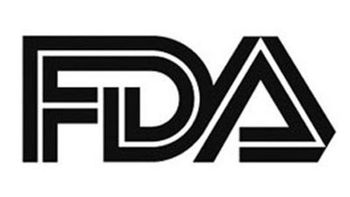
Amezalpat received fast track designation from the FDA for the treatment of patients with hepatocellular carcinoma.
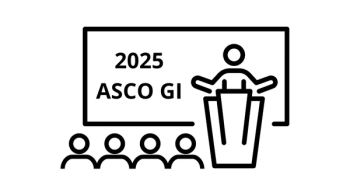
The CheckMate 9DW study demonstrated the efficacy and manageable safety of first-line nivolumab plus ipilimumab in patients with unresectable hepatocellular carcinoma.


